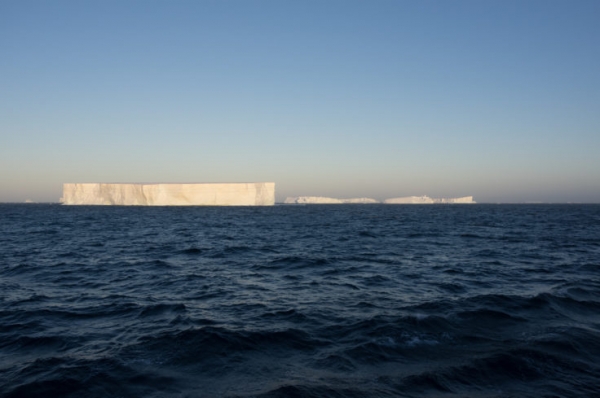The melting of the supergiant iceberg A-68 had a huge impact on the ocean around South Georgia, in sub-Antarctica, and significantly changed the Southern Ocean’s temperature and saltiness, with potentially major consequences for this ecologically significant region. The results are published this week in the journal Geophysical Research Letters.
In 2020, A-68 – a supergiant iceberg about the size of Luxembourg that calved from the Larsen C ice shelf in 2017 – drifted very close to South Georgia before starting to break up, releasing huge quantities of fresh, cold meltwater in a relatively small region.
Researchers from British Antarctic Survey and University of Sheffield used satellite data to observe how the melting iceberg affected the temperature and saltiness, or salinity, of the top few centimetres of the ocean surface.
They observed the meltwater caused extreme anomalies in the temperature and saltiness of the waters at the ocean surface, of magnitudes that have not been reported for any previous iceberg disintegration so far. Researchers recorded temperatures up to 4.5°C colder than average. The salinity was reduced by more than 10 psu (a way of measuring the amount of salt in water) meaning the surface ocean became around two-thirds of its normal saltiness.
Read more at British Antarctic Survey
Image: The melting of the supergiant iceberg A-68 had a huge impact on the ocean around South Georgia, in sub-Antarctica,_Povl Abrahamsen, BAS


